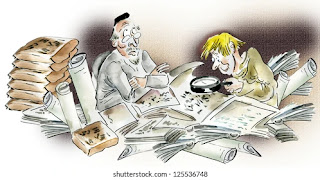Have technological developments enabled us to observe the past more directly?
Technological developments have significantly affected almost every part of life. Modern technology has helped a lot in the improvement of archaeology. Archaeology is the study of the human past using material remains. This opened up more opportunities to discover about the past. Archaeologists use advanced excavation techniques, enabling greater recovery of fragile artifacts. They use technology that ranges from lidar to x-ray guns that help them view the sites without disturbing the soil. Google Earth helps to spot out new sites to be examined by the archaeologists. Drones and help the archaeologists get a better view of sites that are hard to look into using Google Earth. Modern technology improves preservation techniques and also allows researchers to return to a site to answer additional questions. This shows that knowledge is gained.
DNA extraction and amplification techniques help make it possible to identify biological material from tiny bits of DNA. DNA fragments scraped from the inner walls of the ancient jars show what they contained in the past. CT scanning and advanced 3D-modeling makes it possible to virtually look fully inside artifacts which are extremely fragile without even touching it. This helps the archaeologists to read the hidden text and identify patterns which might reveal new information. Technology has helped historians by allowing them to analyze the data that used to be inaccessible.
A Paleontologist is a person who studies the history of life on Earth as based on fossils. Fossil is the remains or impression of a prehistoric plant or animal embedded in rock and preserved in petrified form. Advanced CT scanning technology has led to detailed three-dimensional imaging of the remains of a fossil without removing it from the region. All these technological developments have helped archaeologists to look into the ancient artifacts and remains in a more direct and easier way to look for answers to their questions about the past.



Comments
Post a Comment